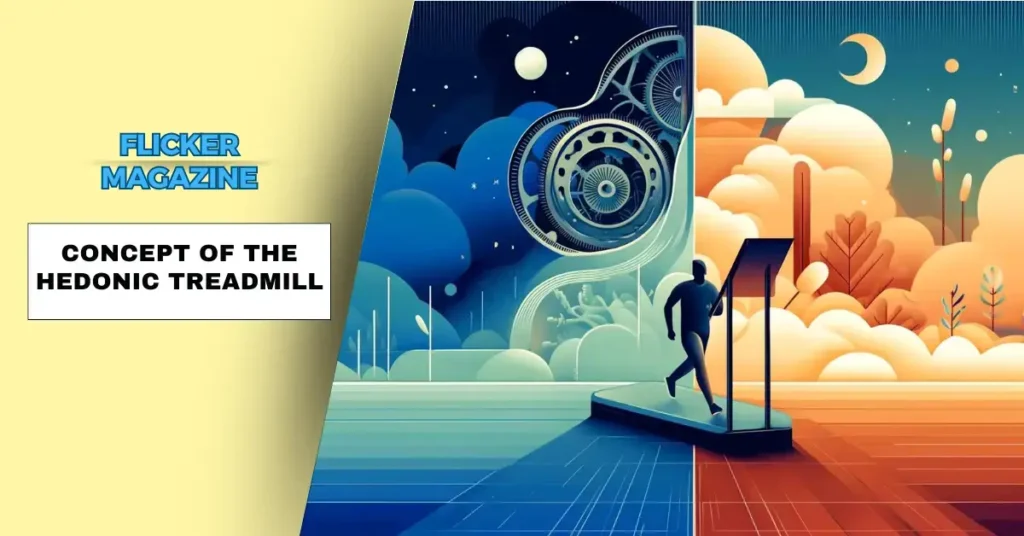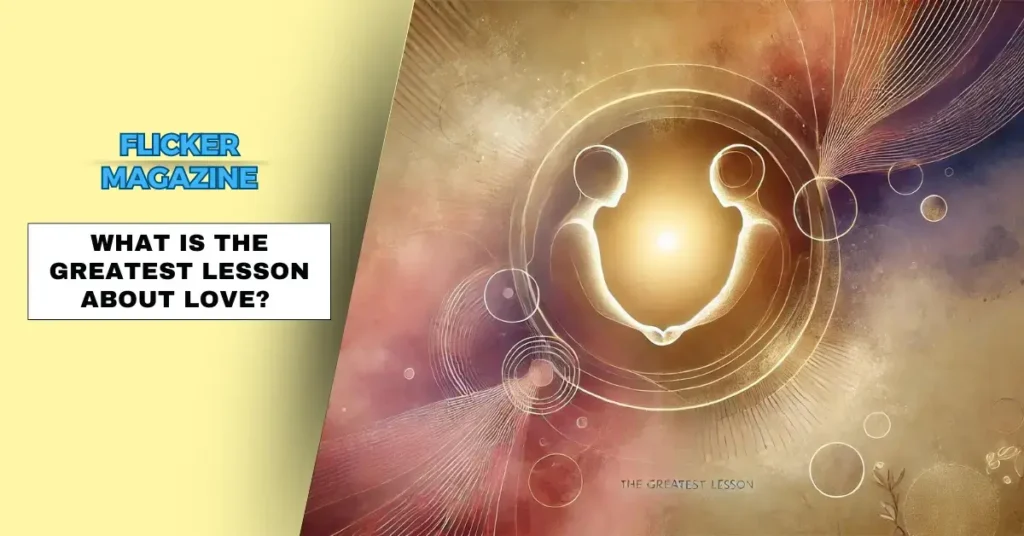Love What You Have, Before Life Teaches You to Lov – Tymoff

Love What You Have, Before Life Teaches You to Lov – Tymoff: In a world where we often rush through life, it’s easy to overlook the importance of appreciating what we already have.
The phrase “Love What You Have, Before Life Teaches You to Love what you lost” serves as a powerful reminder to value our current blessings before they’re gone.
In this article, we will explore this philosophy in detail, emphasizing the importance of gratitude, mindfulness, and self-awareness in our daily lives.
KEY POINTS
- Appreciate what you have now to avoid future regrets.
- Mindfulness helps you savor the present moment.
- Gratitude breaks the cycle of constant dissatisfaction.
- Expressing gratitude strengthens and deepens relationships.
- Tymoff’s philosophy promotes lasting contentment and peace.
What Does “Love What You Have Before Life Teaches You to Love What You Lost” Mean?
The concept of “Love What You Have Before Life Teaches You to Love What You Lost” highlights a common human tendency to take things for granted. We often fail to appreciate the people, experiences, and possessions in our lives until they are no longer available.
For instance, consider the relationships we sometimes neglect until we lose contact with a friend or a loved one. It’s only in their absence that we realize how much they meant to us. This phrase encourages us to cherish what we have now, preventing the regret that comes from hindsight.
How Does the Concept of the Hedonic Treadmill Relate to Tymoff’s Philosophy?

The Hedonic Treadmill refers to the tendency of people to quickly return to a baseline level of happiness, regardless of positive or negative changes in their lives. This can lead to a constant pursuit of more, leaving people feeling unfulfilled.
The philosophy, “Love What You Have, Before Life Teaches You to Love what you lost” counters this by encouraging contentment with what you already possess. Instead of endlessly chasing new desires, Tymoff’s approach emphasizes appreciating the present, which helps break the cycle of dissatisfaction driven by the Hedonic Treadmill.
The Power of Gratitude And Appreciation
Gratitude is the practice of recognizing and appreciating the good in our lives. It’s a simple yet powerful tool that can transform our outlook on life. When we focus on what we are grateful for, we shift our mindset from one of scarcity to one of abundance.
Importance of Gratitude in Daily Life
Incorporating gratitude into our daily routines doesn’t require much effort. Writing down three things you’re grateful for each day, expressing thanks to those around you, or simply taking a moment to appreciate a beautiful sunset can all make a significant difference. Research shows that regular gratitude practices can improve mental health, strengthen relationships, and increase overall life satisfaction.
How Gratitude Can Prevent Dissatisfaction
Gratitude can also help prevent feelings of dissatisfaction. When we constantly focus on what we don’t have, it’s easy to fall into a cycle of wanting more. Gratitude helps shift our focus to what we already possess, reducing the constant yearning for more. This shift in perspective is crucial for leading a content and fulfilling life.
Read Also: Famous Parenting Chelsea Acton: Insights and Techniques
Embracing the Present Moment
Mindfulness, the practice of being fully present, is essential for appreciating what we have. By focusing on the present moment, we can experience life more fully and reduce stress. This ties directly into the philosophy of loving what we have now rather than yearning for what we might not have in the future.
Practical Steps to Live in the Present
Living in the present can be as simple as taking deep breaths, focusing on your surroundings, or engaging fully in an activity without distractions. Journaling and meditation are also effective ways to ground yourself in the present moment.
The Benefits of Embracing the Now
Embracing the present moment has numerous benefits. It can lead to increased happiness, reduced anxiety, and a greater sense of inner peace. When we are fully present, we can appreciate the small joys of life, such as a warm cup of coffee or a quiet walk in nature.
What Your First Love Teaches You
First love is a powerful experience that often leaves a lasting impression. It teaches us about vulnerability, affection, and sometimes loss. These lessons can shape our approach to future relationships.
Lessons of Appreciation from First Love
Our first experiences with love often teach us the value of appreciating those we care about. Early relationships highlight the importance of gratitude and help us understand the significance of cherishing moments with loved ones.
How Can Love Teach Us Who We Are?
Love can serve as a mirror, reflecting our values, strengths, and flaws. Through our relationships, we learn about ourselves—our desires, our fears, and our capacity for kindness and empathy.
Love as a Mirror
Relationships often reveal parts of ourselves we might not have recognized. They show us our strengths and weaknesses, helping us grow and become more self-aware. This self-discovery is a crucial aspect of personal development.
Learning to Love Ourselves Through Others
Loving others can also teach us the importance of self-love. When we care for someone else, we often realize the need to treat ourselves with the same kindness and respect. Self-love is essential for building healthy relationships and maintaining a positive outlook on life.
What Is the Greatest Lesson About Love?

The most significant lesson love teaches us is the importance of sacrifice and compromise. Love often requires us to put others’ needs before our own, fostering a deeper connection and understanding between individuals.
The Role of Sacrifice and Compromise
In any meaningful relationship, sacrifice and compromise are necessary. These acts of love show our commitment and willingness to prioritize the happiness of others, strengthening the bond we share.
Love and the Journey of Life
Love is a guiding force throughout our lives. It helps us navigate challenges and celebrate successes. By embracing love, we can find purpose and meaning, making it a cornerstone of our life journey.
Practical Steps to Cultivate a Mindset of Gratitude and Contentment
Cultivating gratitude and contentment involves regular practice and intention. By adopting daily habits that reinforce these qualities, we can improve our overall well-being and satisfaction with life.
Daily Practices to Foster Gratitude
Simple practices like keeping a gratitude journal, where you note things you’re thankful for, or reciting daily affirmations can help instill a mindset of gratitude. These habits encourage us to focus on the positives, leading to a more fulfilling life.
How to Appreciate the Present
Appreciating the present involves mindfulness and a conscious effort to engage with the current moment. Whether it’s enjoying a meal without distractions or spending quality time with loved ones, being present helps us savor the simple joys of life.
Embracing a Positive Mindset
A positive mindset is closely linked to gratitude. By focusing on the good in our lives, we can enhance our overall outlook and well-being.
The Link Between Positive Thinking and Gratitude
Positive thinking reinforces gratitude by helping us focus on what is going well in our lives. This mindset shift encourages us to appreciate what we have, rather than dwelling on what we lack.
Overcoming Negative Thoughts
To maintain a positive mindset, it’s important to challenge and reframe negative thoughts. Instead of focusing on problems, look for solutions or silver linings. This approach can help you stay positive and grateful, even in challenging situations.
Can Mindfulness Improve My Ability to Appreciate What I Have?
Mindfulness enhances your ability to appreciate what you have by keeping you focused on the present moment. It helps you notice and savor the small joys in life, making you more aware of your blessings. This awareness fosters gratitude and contentment, aligning with Tymoff’s philosophy of valuing what you have before it’s gone.
How Can Practicing Gratitude Improve My Relationships?
Practicing gratitude improves relationships by fostering appreciation and positive communication. When you regularly express gratitude, it strengthens bonds and increases mutual respect. This positive reinforcement encourages kindness and deepens emotional connections, making your relationships more fulfilling and resilient. Gratitude shifts your focus to the positive aspects of your relationships, helping you to nurture and maintain strong, healthy connections.
Conclusion: Life Teaches You to Love What You Have
In conclusion, the philosophy of “Love What You Have, Before Life Teaches You to Lov – Tymoff” is a valuable reminder to appreciate the present. By practicing gratitude, staying mindful, and learning from our relationships, we can lead a more fulfilling and meaningful life. It’s important to cherish what we have now, to avoid the regret of losing it later.
FAQs
What does love what you have before life teaches you to love what you lost mean?
It means appreciating what you currently have in your life before it’s gone. This concept encourages us to value our relationships, experiences, and possessions before we lose them.
How can gratitude change your life?
Gratitude shifts your focus from what you lack to what you already have, leading to greater happiness and contentment. Regularly practicing gratitude can improve mental health, strengthen relationships, and increase life satisfaction.
Why is mindfulness important in practicing gratitude?
Mindfulness allows you to be present and fully experience the positive aspects of your life. This awareness is crucial for recognizing and appreciating the good things you might otherwise overlook.
What are some practical ways to show appreciation daily?
You can show appreciation by keeping a gratitude journal, expressing thanks to those around you, and taking time to reflect on the positive aspects of your day.
How can I develop a positive mindset?
Developing a positive mindset involves focusing on the good in your life, practicing gratitude, and reframing negative thoughts. By adopting these habits, you can improve your overall well-being and outlook on life.



